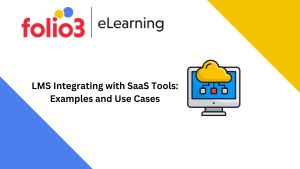Moodle LMS Features – Introduction
There are many LMS (Learning Management Systems), as we are all aware, that provide a variety of aspects to satisfy current learning requirements. It’s intriguing to see how the conventional method of learning has also been significantly changed by the various inventions and technology that are currently sweeping the globe.
Because Moodle is a well-liked LMS with lots of flexibility and manageable scalability, the focus of the article is on Moodle LMS features.

Top 9 Moodle LMS Features
The Moodle LMS is a platform that may be customized while keeping many common characteristics & capabilities. Here are the top 9 Moodle LMS features for its popularity right now!
- Hosting The Cloud
Although not entirely free, the best Moodle hosting is still very affordable. There is a charge for the server even if the source code is free. Compared to the costs associated with many other LMS, customization is quite affordable.
You can further reduce your costs by deciding to use cloud computing rather than purchasing expensive plans and equipment for your company. You will be able to lower your operating costs thanks to this. You won’t need to spend money on design improvements to support this scaling.
- Microlearning
The user can pick and shape microlearning to suit their specific needs. It improves the training’s alignment with its program. Moodle gives you the ability to access additional interactive and reusable content, which is a notable advantage. Microlearning is quick learning that is easily customizable to cut down on publication time.
Additionally, it offers the basic functionality of Moodle, which is a very comfortable content creation capacity. Additionally, creating brief interactive classes is simple. As a result, this microlearning feature that is learner-driven increases traffic and improves training and career efficiency.
- Friendly User Interface
Businesses that utilize learning management systems are looking to switch to a different system that can provide a better user experience. Amazing self-descriptive navigation features are available in the Moodle LMS.
Because the LMS is simple to use, you need to spend the least amount of time on training and education to be able to teach your staff how to use it with ease. Therefore, having a user-friendly interface is important for an LMS.
- Social Development
Students often participate in one topic in a course before moving on to a different one. That might make you bored. Unfortunately, Moodle LMS addresses every complaint about monotony.
However, Moodle offers modifications that may provide an interface similar to well-known social features with a continuous stream of posts and interaction with the students’ movements and resources, but this is not well known. It may include visible particulars that quickly convey contexts like comments, likes, or upvotes. Isn’t it cool to study digitally in this way?
- Adaptive Learning
Current LMS providers use the term “tailored resources and educational activities” to describe their capacity to cater to the unique needs of each student. Through instructional design, which is created for adaptable learning, this is achievable in Moodle. It contains features like set lesson training using sets, quiz flexibility, activity access rules, course completion part, and many more.
No learning management system will render education flexible if your course isn’t flexible. Therefore, request that your instructional designers create adaptive courses to help them learn.
- Course management
The student data system at your university can easily be integrated with Moodle. Moodle offers a wide range of customization options. You have the option of installing pre-made templates along with self-hosting and creating your own. Additionally, you can connect to Moodle’s server and assist with course management if you don’t have access to additional internal system support.
- Gamification
Gamification is a fascinating feature that makes use of game concepts to amuse and motivate users. There is a difference between gamified education and education based on games. Although this is a completely different issue, the important thing to remember is that Moodle can be used for both.
To impact the delivery content, games like Hangman, Crossword, Millionaire, Snake & Ladder, etc. can be preserved. Numerous Moodle plugins can help implement this gamification technique.
- Over 500 Incredible Plugins
The fact that Moodle offers more than 500 practical plugins is an incredible additional factor in its appeal. It is highly adjustable, very configurable, and packed with incredible plugins created by a global community of leaders, supervisors, and students. It enables you to complete all of your tasks and makes studying collaborative, engaging, and enjoyable.
- Analytics
You can track submissions, lesson completions, and competencies using Moodle analytics. This is helpful when assessing workers for advancement or general increment planning.
A report on learning progress, a diagnosis of educational engagement, and a projection of learning advancement are also provided in addition to the primary tracking. With a group of teachers, it is possible to send proactive alerts to the one who can speak to students effectively or quickly access the material with more information about his or her behavior.
Conclusion
Due to its great degree of flexibility and feature-richness, Moodle-based LMS is favored by enterprises of all sizes. Due to its open-source nature, it is subject to scrutiny, and designers from all over the world can edit the programs to make them safe.
A large community of learners, managers, and leaders is constantly adding the newest plugins to enhance special features and functionalities and create educational standards. Consider the Moodle LMS features, which are cloud-hosted and include specialized features and services, if you’re seeking an LMS that fits your demands.

FAQs
Moodle-based LMS is an open-source platform that is used to deliver online courses and manage e-learning activities. It is a web-based application that allows instructors to create, manage, and deliver online courses to learners.
Some of the key features of Moodle-based LMS include course management, user management, course content management, communication tools, assessment and grading, and reporting and analytics.
Yes, Moodle-based LMS can be used for a wide range of courses, including academic courses, professional development courses, and corporate training courses.
Moodle-based LMS is designed to be user-friendly and easy to use. The platform offers a range of features that make it easy for instructors to create and manage courses, and for learners to navigate and access course content.
Yes, Moodle-based LMS can be customized to suit specific requirements. The platform offers a range of customization options, including custom themes, plugins, and modules.
Yes, Moodle-based LMS is suitable for large-scale e-learning initiatives. The platform can support a large number of learners and offers a range of features that make it easy to manage and deliver courses at scale.
Moodle-based LMS offers a range of collaboration and communication tools, including discussion forums, chat rooms, and messaging systems. These tools allow learners and instructors to interact with each other and collaborate on course content and activities.









